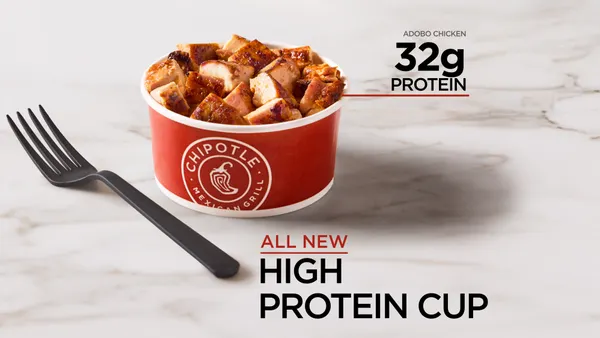Dive Brief:
- Tim Hortons' U.S. franchisees have sued the company for "price gouging" supplies, according to Restaurant Business. The lawsuit was filed by the Great White North Franchisee Association-USA against Tim Hortons and parent company Restaurant Brands International.
- The franchisees allege that the company began taking supplier rebates, which hiked up food prices.
- This is the second such lawsuit filed by the franchisee group, according to a company spokesperson, who added that the more recent filing "appears to be a second attempt to pursue similar claims with a different court."
Dive Insight:
The earlier suit, which was filed in July 2018, accused the company of charging unreasonable prices for food among other allegations. In an interview with Restaurant Business at that time, the franchisees' attorney Jerry Marks said a case of Coke costs Tim Hortons franchisees $75.31 a box, versus about $28 for Dunkin' Donuts operators.
In this latest suit, franchisees allege that the company purposefully shifted its focus to increase its earnings from supplies sold to franchisees by limiting the suppliers franchisees could use — suppliers that in turn paid rebates to Restaurant Business International.
Restaurant Business reports that rebates are common in the industry, but are typically divided between the franchisor and franchisees. Tim Hortons' franchisees also say RBI's suppliers charged excessive prices for goods, which has eroded their profits. Franchisee agreements regarding suppliers are usually written to ensure brand standards, not to yield an additional revenue stream for franchisors, which is what is alleged here.
The franchisees further allege that the parent company is concealing its relationship with those suppliers and that it is misusing marketing fees that are part of new franchise agreements. The suit calls RBI’s agreements "illegal and fraudulent."
Additional suits have been filed by U.S. operators as well, including in 2017 and from its Canadian operators last year.
Accusations of price gouging are not new to the restaurant industry. McDonald's franchisees in Europe accused the company of hiking rent prices in 2016. But the biggest example comes from Quiznos, which paid a $200 million settlement in 2010 to franchisees after price-gouging supplies to build its own profits. The road to recovery has been a long one for Quiznos, which had about 4,700 units in 2007 to about 400 as of 2018.
Tim Hortons is struggling in the U.S. and this lawsuit may compound its issues. Restaurant Business reports that nearly one out of every five Tim Hortons U.S. locations have closed over the past five years. Even if the allegations are proven false, the lawsuit underscores a much deeper issue. Tensions between franchisors and the franchisees who are on the brand's front lines are never good, as evidenced especially by the Quiznos case. If there is a perception that the company is engaging in unfair practices, it can erode trust among those tasked with running the stores.
According to RBI’s latest earnings call, Tim Hortons is generating lower franchisee profitability, which has hurt its results. CEO Jose Cil provided a "roadmap for 2020" to get the brand back on track. That plan includes three key principles: elevating product quality, innovating and growing its core categories and modernizing the brand.










